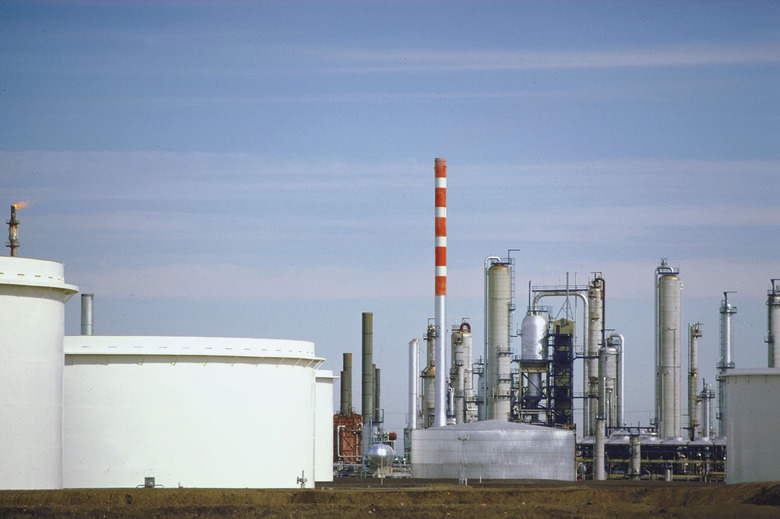How To Convert H2S Grains To Parts Per Million
Hydrogen sulfide (H2S) is a polluting and flammable gas that is generated by industrial processes. It is responsible for the "rotten egg smell" that is encountered near chemical plants and petroleum refineries. Measuring the amount of hydrogen sulfide produced by a chemical process or a gas or petroleum pipeline is often required by environmental authorities. The amount of hydrogen sulfide is also an indicator of the efficiency or quality of the process or product being tested. Hydrogen sulfide is measured in grains or parts per million (ppm), and it is easy to convert measurements from one unit to the other.
Step 1
Obtain the results for presence of hydrogen sulfide in grains by using properly calibrated test equipment, according to manufacturer's directions and any pertinent environmental regulations.
Step 2
Multiply the result by 16.5. For instance, 0.25 grains of H2S equals 4.125 parts per million.
Step 3
Note the result and record it or report it as necessary.
Cite This Article
MLA
DeMerceau, John. "How To Convert H2S Grains To Parts Per Million" sciencing.com, https://www.sciencing.com/convert-grains-parts-per-million-8772357/. 24 April 2017.
APA
DeMerceau, John. (2017, April 24). How To Convert H2S Grains To Parts Per Million. sciencing.com. Retrieved from https://www.sciencing.com/convert-grains-parts-per-million-8772357/
Chicago
DeMerceau, John. How To Convert H2S Grains To Parts Per Million last modified August 30, 2022. https://www.sciencing.com/convert-grains-parts-per-million-8772357/
